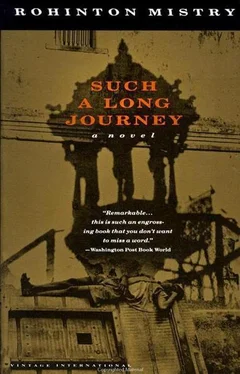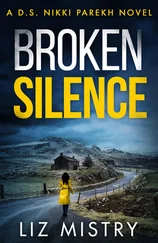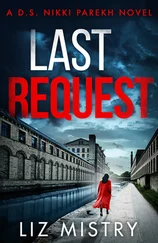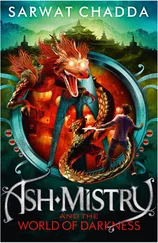Last year, Major Bilimoria vanished from Khodadad Building. He left without a word to anyone, and no one could guess as to his whereabouts. Shortly after, a lorry had arrived with a key to his flat and instructions to take away his belongings. Hand-painted on its rear fender was a message in letters heavily ornate with curlicues: Trust In God — Horn Please To Pass. When questioned by the neighbours, the driver and his helper would say nothing: Humko kuch nahin maaloom, we don’t know anything, was all that could be got out of them.
The Major’s abrupt departure had wounded Gustad Noble more than he allowed anyone to see. Only Dilnavaz could sense the depth of his pain. ‘To leave like this, after being neighbours for so many years, is a shameful way of behaving. Bloody bad manners.’ He said no more than that on the subject.
But although Gustad would not admit it, Jimmy Bilimoria had been more than just a neighbour. At the very least, he had been like a loving brother. Almost one of the family, a second father to the children. Gustad had even considered appointing him as their guardian in his will, should something untimely happen to himself and Dilnavaz. A year after the disappearance, he still could not think of Jimmy without the old hurt returning. He wished Dilnavaz had not brought up his name. Receiving that letter had been bad enough. And such a letter — makes my blood boil, every time I think of it.
Trying to maintain his posture of indifference, he overdid the sarcasm: ‘How would I know what Jimmy would think about Pakistan? He didn’t leave us his new address, did he? Or we could have written and asked for his expert opinion.’
‘You are still upset,’ said Dilnavaz. ‘But I still believe that without a good reason he would not have left like that. One day we will find out why. He was a good man.’ She nodded meditatively, stirring the tea in the aluminium kettle. The colour seemed right, and she poured two cups. From the icebox, she fetched the bit of milk left over from yesterday: the bhaiya had not yet arrived but this would do for now. Gustad filled his saucer and blew on it. By the time he finished the newspaper, it was almost prayer time, so he fetched his black velvet prayer cap and stepped outside. The sparrows were twittering reassuringly in the solitary tree in the compound.
And when he reached halfway into the kusti recitation and the radio started somewhere, first in Hindi, and then mingled with the BBC World Service, he was not distracted because he already knew all the news.
The Hindi broadcast ended, and the radio began a series of jingles and ads: Amul Butter (‘…utterly, butterly delicious…’), Hamam Soap, Cherry Blossom Shoe Polish. The other set, tuned to the rasping, crackling BBC, was switched off.
Gustad finished retying the kusti round his waist and noted with satisfaction that the two ends, as usual, were of equal length. He raised and lowered his shoulders to let his sudra settle comfortably around him. The vest slid from under the kusti in response to the movement, providing the slack he liked to feel around his stomach. A draught crept across his lower back. It reminded him of the vertical tear. Most of his sudras had rents in them, and Dilnavaz kept fretting that a new batch was needed. Mending was useless — no sooner was one tear sewn up than another appeared because the mulmul itself was worn. He told her not to worry: ‘A little air-conditioning does no harm,’ laughing away, as usual, the signs of their straitened circumstances.
He turned his face to the sky, eyes closed, and began reciting the Sarosh Baaj, silently, forming the words with his lips, when the domestic sounds of the building were drowned by the roar of a diesel engine. A lorry? The engine idled for a few moments, and he resisted turning around to see. There was nothing he disliked more than to permit a break in his morning prayers. Bad manners, that’s what it was. He would not rudely interrupt when talking to another human being, so why do it with Dada Ormuzd? Especially today, when there was so much to be grateful for, with Sohrab’s admission to IIT which, with one wonderful, blessed stroke redeemed all his efforts, all the hardships.
The thundering lorry pulled away, leaving a cloud of diesel fumes to linger at the gate. By and by, the morning air carried in the acrid smell. Gustad wrinkled his nostrils and continued with the Sarosh Baaj.
By the time he finished, the lorry was quite forgotten. He went to the two bushes growing in the small patch of dusty earth under his window, opposite the black stone wall, and performed his daily bit of gardening. There were scraps of paper tangled in the leaves. Every morning he tended both bushes, although the vinca was the only one he had planted — the mint had begun to sprout of its own accord one day. Assuming it was a weed, he had almost uprooted it. But Miss Kutpitia, watching from her balcony upstairs, had deftly elucidated the medicinal uses of this particular variety. ‘That is a very rare subjo, very rare!’ she shouted down. ‘The fragrance controls high blood-pressure!’ And the tiny two-lipped white flowers, growing in spikes, contained seeds which, soaked in water and ingested, cured numerous maladies of the stomach. So Dilnavaz insisted that he let the plant stay, to please the old woman if for nothing else. Word of the newly discovered medicine had spread quickly, however, and people stopped by to ask for its leaves or the magic seeds. The daily demand for subjo kept in check its vigorous growth, which threatened to overwhelm the vinca and its five-petalled pink blooms that gave Gustad such joy.
He cleared away the paper scraps, cellophane sweet-wrappers, a Kwality ice-cream stick, and attended next to his rose plant. He had secured its pot by thick picture-hanging wire to a post within the entrance-way, with several complicated loops and knots, so that anyone with mischief in mind would have to spend hours undoing the intricacies. He picked up the petals of a faded rose. Then the smell of diesel fumes came again, and drew him to the gate.
A notice was pasted to the pillar, while a shining black oil puddle marked the spot where the lorry had stopped. The official document from the municipality bulged in places with glue and air bubbles. He did some quick calculations after reading it. The bloody bastards were out of their minds. What was the need to widen the road? He measured the ground with hurried strides. The compound would shrink to less than half its present width, and the black stone wall would loom like a mountain before the ground-floor tenants. More a prison camp than a building, all cooped up like sheep or chickens. With the road noise and nuisance so much closer. The flies, the mosquitoes, the horrible stink, with bloody shameless people pissing, squatting alongside the wall. Late at night it became like a wholesale public latrine.
But it was just a proposal, nothing would come of it. Surely the landlord would not give away half his compound for the ‘fair market value’ that the municipality offered. It was hard to find anything these days more unfair than the government’s fair market value. The landlord would certainly go to court.
The diesel smell persisted, following him through the compound as he returned home. It reminded him of the day of his accident, nine years ago, when such a smell had been present, also strong and undiminishing, while he lay in the road with his shattered hip, in the path of oncoming cars. He wrinkled his nose and wished the wind would change. His hip, the one which made him limp, began to hurt a little as he entered the flat.
Читать дальше












